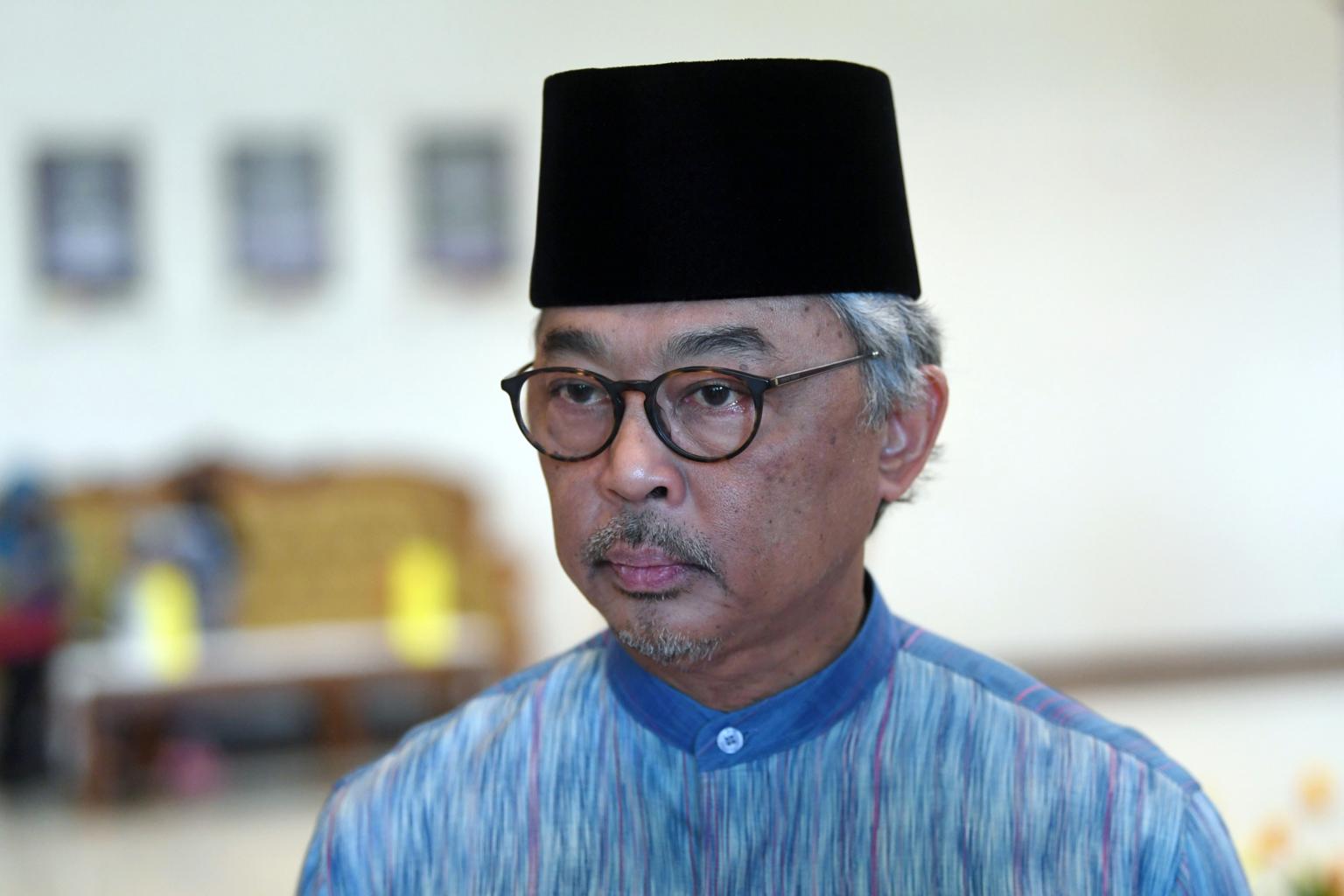Pahang regent likely to succeed ailing sultan, paving way for ascension to Malaysia throne
Sign up now: Get ST's newsletters delivered to your inbox

The Regent of Pahang may succeed the state's ailing sultan, which would pave the way for the regent to become Malaysia's 16th King.
PHOTO: BERNAMA
Follow topic:
KUALA LUMPUR - The Pahang royal household will meet this week to discuss the possibility of the regent of Pahang succeeding the state's ailing sultan, which would pave the way for the regent to become Malaysia's 16th King, the New Straits Times reported on Wednesday (Jan 9).
The report, which cites a royal source, came as Malaysia seeks to elect a new monarch after the abrupt resignation of the Sultan of Kelantan, Sultan Muhammad V, as the 15th King or Yang di-Pertuan Agong on Sunday.
Under Malaysia's unique five-year rotation system involving the nine royal Malay houses, the next in line is Sultan Ahmad Shah of Pahang, 88, followed by Sultan Ibrahim Sultan Iskandar of Johor, 60, and then Sultan Nazrin Shah of Perak, 62.
Sultan Ahmad Shah, who was elected Malaysia's seventh king in 1979, is not in good health. His son, Tengku Abdullah Sultan Ahmad Shah, 59, has been the Pahang Regent for two years, playing the role of acting ruler in the east coast state.
"The matter (proposal to install Tengku Abdullah as sultan) was submitted by several influential family members and advisers in the royal house. Sultan Ahmad has been informed of the matter," a royal source was cited by NST as saying.
"The meeting on the abdication will be held this week. It is to be attended only by close family members and advisers. The sultan is unwell. Tengku Abdullah has been handling state matters in his father's stead.
"Based on the rotation system, it is Pahang's turn to be the Yang di-Pertuan Agong after Kelantan. We wish to respect the rotation system," the source said.
Under the Pahang Constitution, the succession of rulers can take place if the sultan consents to relinquish his rights and powers.
The abdication must be accompanied by a warrant to acknowledge the relinquishing of powers, signed and stamped with the state's seal by the outgoing ruler.
The signing of the warrant must be witnessed by the menteri besar and the state secretary. The warrant would then be declared in the government gazette and to the people in the state.
Aides to Tengku Abdullah and the sultan's office in Pekan declined to comment due to the sensitivity of the matter, NST said.
It cited sources as saying Sultan Ahmad had sought treatment at the National Heart Institute in Kuala Lumpur. He was discharged two weeks ago.
Tengku Abdullah is returning from London to attend the meeting, which is expected to take place at the Pahang palace.
On Monday, the Conference of Rulers decided on Jan 24 for a meeting to select the new king and Jan 31 for the new monarch's oath-taking ceremony.
On the possible ascension of Tengku Abdullah as Pahang sultan, constitutional expert, Associate Professor Shamrahayu Ab Aziz, was cited by NST as saying: "You need to be a sultan before you can be king, regardless of seniority at the state's throne.
"This can be seen in the election of Sultan Muhammad V as the 15th Yang di-Pertuan Agong in 2016 despite being sultan only in 2010.
"The same goes for the rotation system. It is only during the first rotation (which began in 1957) that the seniority of rulers was implemented in guiding the selection process."

